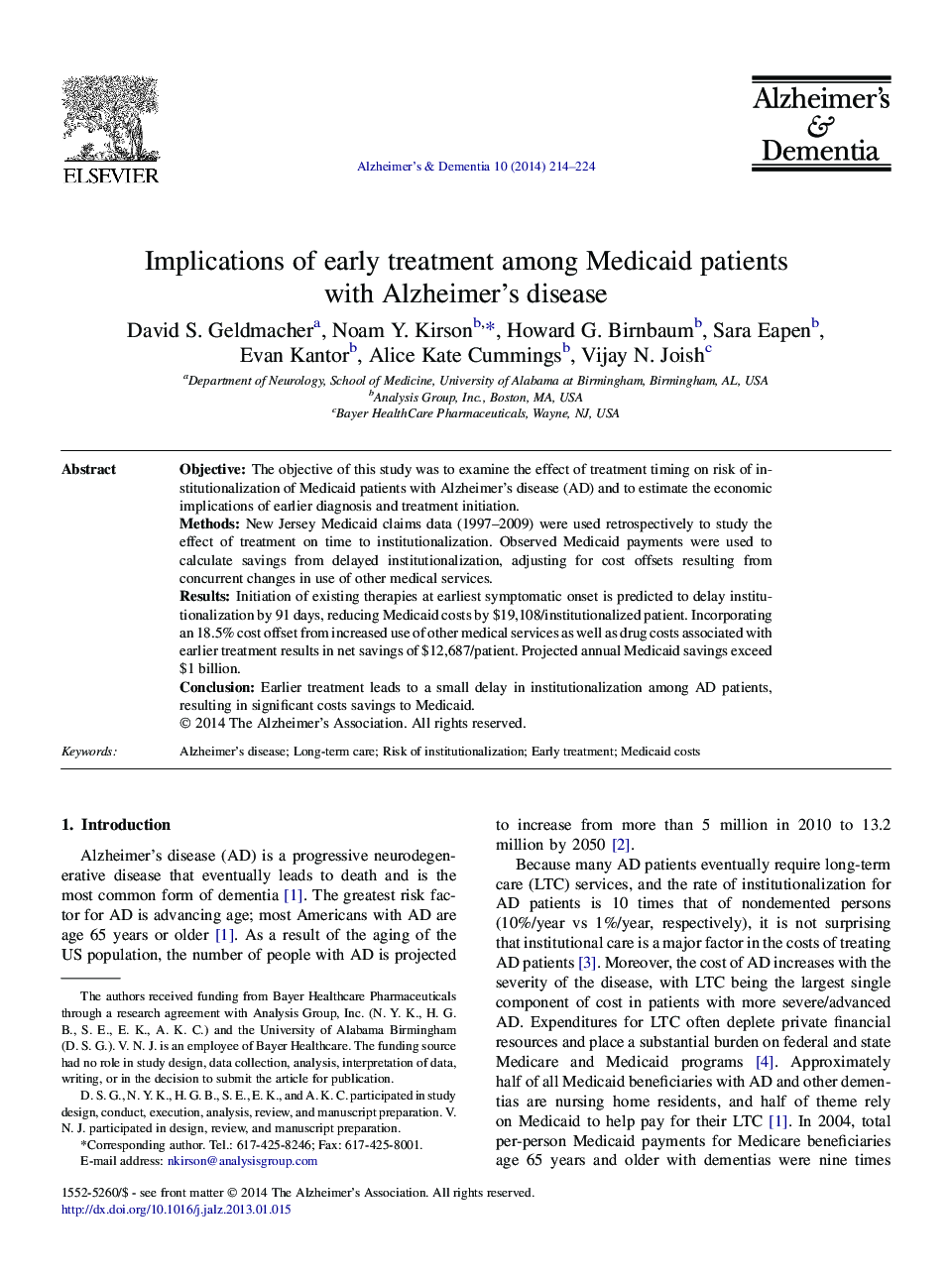| Article ID | Journal | Published Year | Pages | File Type |
|---|---|---|---|---|
| 5622971 | Alzheimer's & Dementia | 2014 | 11 Pages |
ObjectiveThe objective of this study was to examine the effect of treatment timing on risk of institutionalization of Medicaid patients with Alzheimer's disease (AD) and to estimate the economic implications of earlier diagnosis and treatment initiation.MethodsNew Jersey Medicaid claims data (1997-2009) were used retrospectively to study the effect of treatment on time to institutionalization. Observed Medicaid payments were used to calculate savings from delayed institutionalization, adjusting for cost offsets resulting from concurrent changes in use of other medical services.ResultsInitiation of existing therapies at earliest symptomatic onset is predicted to delay institutionalization by 91 days, reducing Medicaid costs by $19,108/institutionalized patient. Incorporating an 18.5% cost offset from increased use of other medical services as well as drug costs associated with earlier treatment results in net savings of $12,687/patient. Projected annual Medicaid savings exceed $1Â billion.ConclusionEarlier treatment leads to a small delay in institutionalization among AD patients, resulting in significant costs savings to Medicaid.
